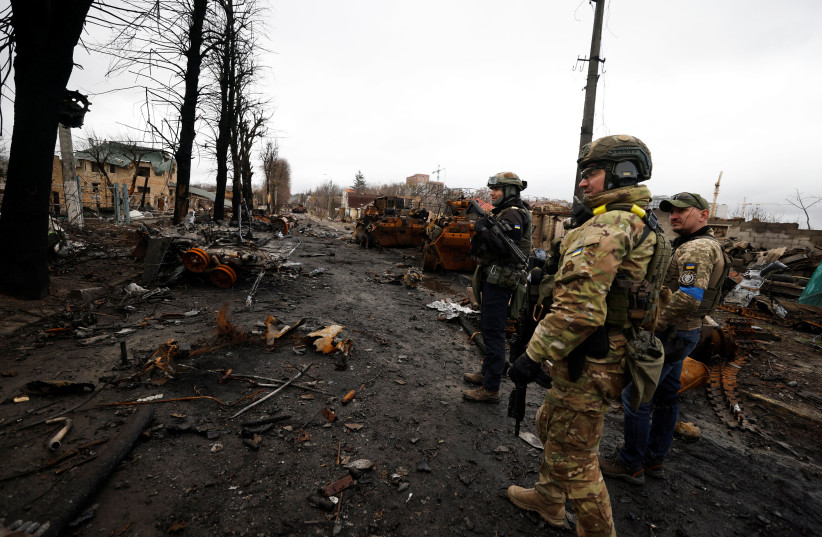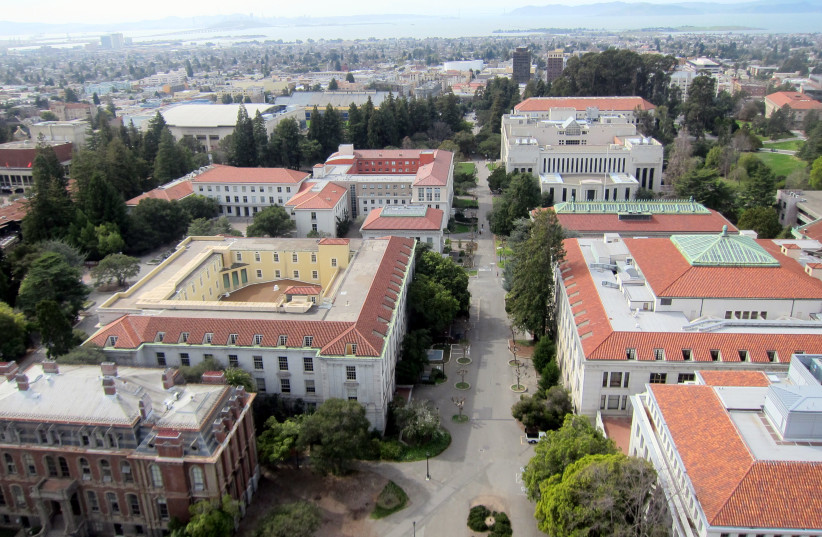There’s a saying that goes “show me who your friends are and I’ll show you who you are,” which is often an oversimplification.
But last month’s events have focused a bright light on alliances that seem to be drawing a distinct line between those fighting for democratic freedoms and those fighting for authoritarianism and oppression.
Abbas visited Putin and praised the Russian leadership during the war
Last week, Palestinian Authority President Mahmoud Abbas visited with Russian President Vladimir Putin and sang the praises of the war-crime-committing Russian leadership.
During their meeting, Abbas emphasized his appreciation for Russia, praising it on all international forums and stating, “Russia stands by justice and international law and that is enough for us.” Also last week, the UN reported that Russia is using sexual assault and rape as a part of its dehumanizing military policy in Ukraine. Apparently, that is “enough” for Abbas.

And speaking of Ukraine, last week the news broke that Russia was using Iranian Shahed-136 kamikaze drones against Ukrainian civilians, and reportedly even brought in Iranians to train the Russian military to operate the suicide drones.
Incidentally, the use of these drones is a violation of the UN Security Council resolution that endorsed the 2015 nuclear deal. In the aftermath of the attacks, Israel provided the Ukrainians with information on the suicide drones, and a private Israeli firm is helping with satellite imagery.
Protests against the Islamic regime continue
But while a few Iranians are busy in Russia training the Russian military to use suicide drones against Ukrainian citizens, the entire country of Iran is erupting in protests against the Islamic regime.
For the fourth straight week, the people of Iran are bravely taking to the streets to call for regime change – in the face of arrest, beatings and death. While the regime has continuously shut off or limited the Internet in response to protests, social media has been on fire to raise awareness of the uprising.
Despite the fact Iranians themselves are almost unanimously calling for regime change, a battle of narratives is being waged in part due to the regime-affiliated National Iranian American Council (NIAC), which has actively pursued a policy of “reform” as well as sanction relief and support for the nuclear deal.
NIAC activists and staff have consistently repeated Iran regime talking points to the West, and NIAC leaders are known to have close associations and interactions with high-ranking Islamic regime officials. When terrorist Qasem Soleimani was assassinated, for example, many of their leaders praised him in the international media.
While NIAC policies are hugely unpopular with Iranians both in Iran and in the diaspora, the group presents itself as representing the Iranian people. Recent backlash on social media to the group strongly indicates otherwise.
But even organizations affiliated with the Islamic regime have supporters on social media: anti-Israel activists and Jewish organizations like J Street. Coming to NIAC’s defense on social media this week was Dylan Williams, J Street’s senior vice president.
J Street's ties with NIAC
Indeed, J Street has a long history of ties with NIAC – the two groups shared some of the same funding for promoting the Iran deal: the Ploughshares Fund granted J Street more than $500,000 to promote the Iran deal in the US, while NIAC enjoyed funding from Ploughshares as well.
Unsurprisingly, many NIAC-affiliated leaders are also virulently anti-Israel and intimately involved in pushing BDS and other anti-Israel policies in the US. One such activist, Hoda Katebi, has been involved with Students for Justice in Palestine, pushing divestment from Israel at UC Berkeley. Additionally, NIAC’s PAC donated to the campaigns of both Reps. Rashida Tlaib and Ilhan Omar and even gave an award to Ilhan Omar.
In the span of only a week, the world saw Russia, Iran and the Palestinians forming an unholy authoritarian alliance – and Israel, Ukraine and the West forming another kind of alliance – standing for democracy and freedom.

The contrast will likely become more clear as events unfold – and world leaders will need to decide if they want to “be friends” with oppressive regimes violating human rights – or countries (and people) fighting for liberty.
The writer is a human rights activist.
